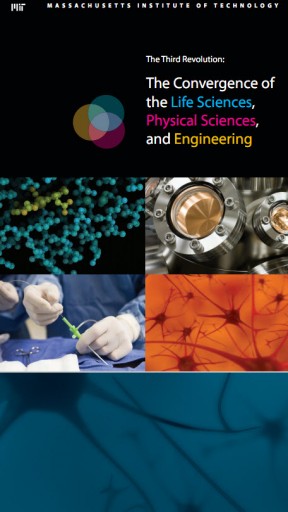
“Convergence is a broad rethinking of how all scientific research can be conducted, so that we capitalize on a range of knowledge bases, from microbiology to computer science to engineering design,” MIT Institute Professor and Nobel Laureate Phillip Sharp, one of the report’s authors, told the AAAS forum.
“It entails collaboration among research groups but, more deeply, the integration of disciplinary approaches that were originally viewed as separate and distinct. This merging of technologies, processes and devices into a unified whole will create new pathways and opportunities for scientific and technological advancement.”
Sharp and the other MIT authors say that convergence offers the potential for a “Third Revolution” in biomedicine that may be as profound as the two life-science revolutions that preceded it: the breakthroughs accompanying the development of molecular and cellular biology, and the sequencing of the human genome, which has made it possible to identify the genetic foundations of many diseases.